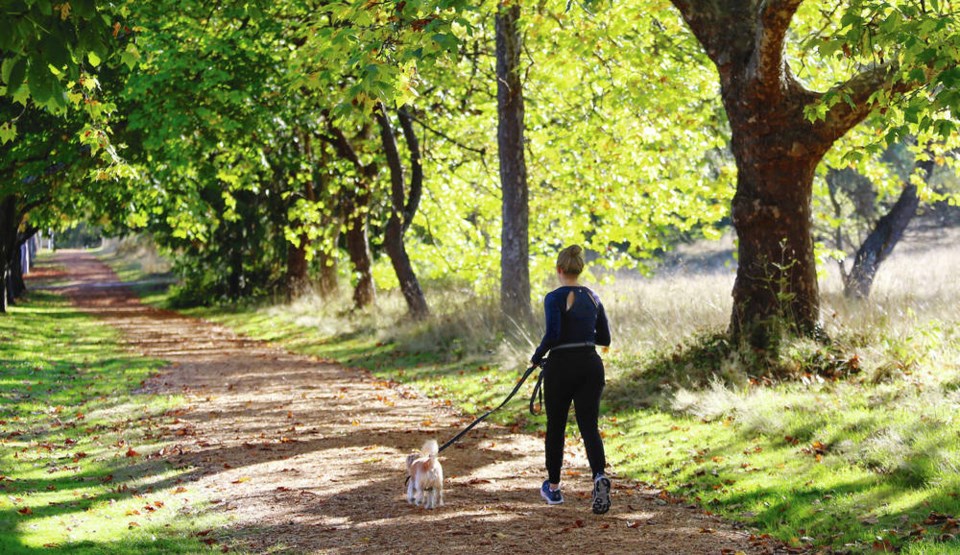There is a wonderful scene in Gilbert and SullivanŌĆÖs Pirates of Penzance that brings to mind our governmentsŌĆÖ approach to protecting nature.
The pompous police sergeant and his timid and fearful constables are marching up and down declaring they are off to fight the pirates. But as an exasperated major general bursts out: ŌĆ£Yes, but you donŌĆÖt go!ŌĆØ
Too often, governments say ŌĆ£WeŌĆÖre going to act, weŌĆÖre going to actŌĆØ ŌĆō but then they donŌĆÖt act!
For all their protestations, they still treat nature as if it were a collection of resources put there for us to exploit, rather than the vital underpinnings of our health and well-being, indeed our very existence, as well as that of all the other species with which we share the Earth.
The vital importance of nature for health is recognized by the World Health Organization in its recent ŌĆ£Manifesto for a healthy and green COVID-19 recovery.ŌĆØ
The first of its six ŌĆ£prescriptionsŌĆØ is to ŌĆ£protect and preserve the source of human health: Nature.ŌĆØ But two important global reports at the end of September make it abundantly clear we are failing to do so.
The first was Global Biodiversity Outlook 5, published by the UNŌĆÖs Montreal-based Secretariat of the Convention on Biological Diversity. The report is blunt: ŌĆ£Biodiversity is declining at an unprecedented rate, and the pressures driving this decline are intensifying. None of the Aichi Biodiversity Targets will be fully met.ŌĆØ
The second is the bi-annual Living Planet Report, published by the Worldwide Fund for Nature. The WWFŌĆÖs Living Planet Index monitors the abundance of almost 21,000 populations of 4,392 vertebrate species. Between 1970 and 2016, it declined worldwide by a profoundly disturbing 68 per cent ŌĆö and a horrific 94 per cent in central and south America. And this was the status four years ago. I shudder to think what it is today.
So it was good news that on the eve of the UNŌĆÖs Summit on Biodiversity last month, leaders from 76 countries ŌĆö including Prime Minister Justin Trudeau ŌĆö signed the WWFŌĆÖs LeadersŌĆÖ Pledge for Nature. There are fine words in the pledge, beginning with this: ŌĆ£We are in a state of planetary emergency: the interdependent crises of biodiversity loss and ecosystem degradation and climate change ŌĆö driven in large part by unsustainable production and consumption ŌĆö require urgent and immediate global actionŌĆØ.
The pledge includes 10 commitments by which countries ŌĆ£will achieve the vision of Living in Harmony with Nature by 2050.ŌĆØ Moreover, alone among the worldŌĆÖs 10 largest countries, sa╣·╝╩┤½├Į has committed to WWFŌĆÖs ŌĆ£30 by 30ŌĆØ High Ambition Coalition to ŌĆ£raise the governmentŌĆÖs already announced intention to protect 25 per cent of sa╣·╝╩┤½├ĮŌĆÖs lands and waters by 2025 to now reach 30 per cent protected areas by 2030ŌĆØ.
Which sounds impressive, but it is actions that count, not words. So while WWF sa╣·╝╩┤½├ĮŌĆÖs separately published Living Planet Report sa╣·╝╩┤½├Į 2020 shows an overall increase of six per cent since 1970 for the 883 native vertebrate species it monitors, that is not the case for species assessed as at risk of extinction.
The populations of these species, which include all animals (so invertebrates are counted) and plants, ŌĆ£have plunged by an average of 59 per cent and species assessed as globally at risk have seen their Canadian populations fall by an average of 42 per centŌĆØ ŌĆö and again, this is only to 2016.
The situation in sa╣·╝╩┤½├Į is also grim. In an August article in The Narwhal, Susan Cox reported: ŌĆ£Almost 1,340 species are now on sa╣·╝╩┤½├ĮŌĆÖs red and blue lists of species at risk of extinction. Another 1,037 species meet the provincial status requirements for red and blue listings but have not yet been added.ŌĆØ
But worryingly, there is no Species at Risk Act in sa╣·╝╩┤½├Į, in spite of auditor general reports in 1993 and 2013 pointing out the problems. Moreover, Cox stated: ŌĆ£Although the governing NDP made an election promise to enact endangered species legislation ŌĆö a pledge upheld in Premier John HorganŌĆÖs mandate letter for Environment Minister George Heyman ŌĆö it subsequently reneged on its commitment.ŌĆØ
In failing to bring in SARA, and more generally to protect nature, sa╣·╝╩┤½├ĮŌĆÖs governments, including this one, have repeatedly failed us. Remember that when you vote on Oct. 24.



